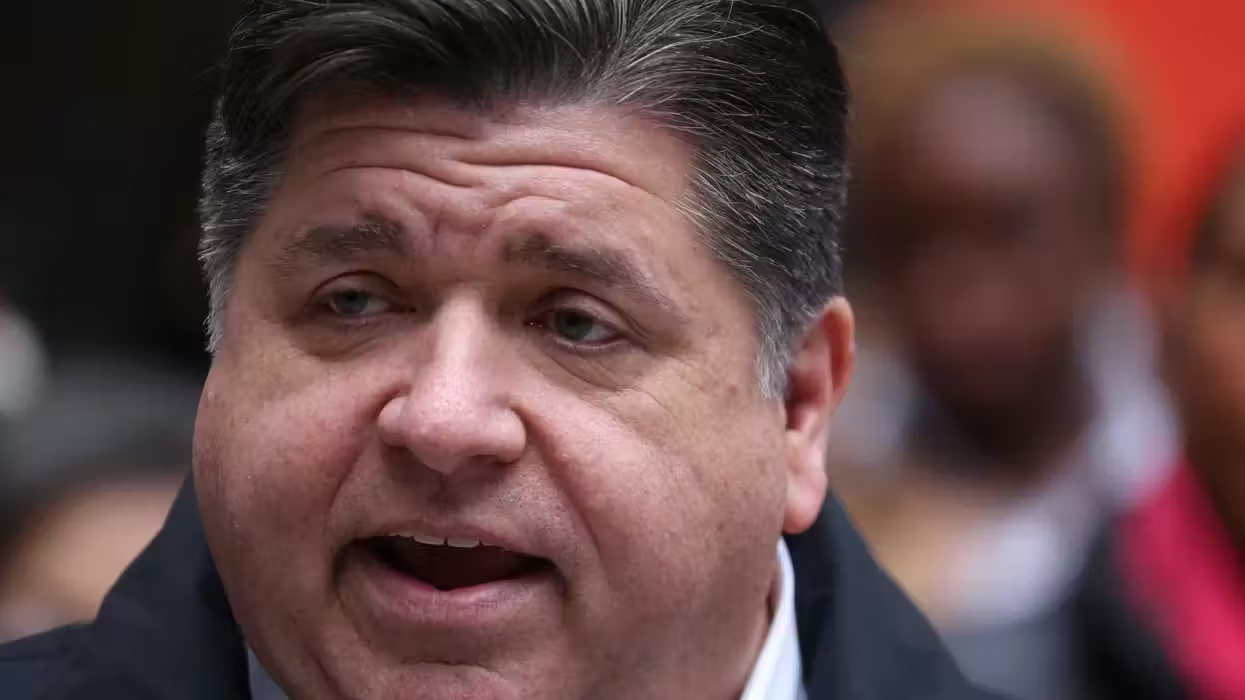
© 2025 Blaze Media LLC. All rights reserved.
So Republicans have finally grown a spine and will fully repeal Obamacare as soon as they take power in January, right?
Like everything else in politics, it’s more complicated than that.
The biggest myth in politics is that the Republican Party wants to repeal Obamacare. In fact, when you call the scheme any other name, most prominent Republicans support the core federal interventions that make insurance insolvent. If the grassroots don’t rise up quickly, Republicans will vote to repeal Obamacare in name only and either retain the core coverage mandates or replace them with a similar system that raises the cost of premiums and eliminates consumer choice.
As we’ve noted before, the heart and soul of Obamacare — the aspect that has made insurance actuarial insolvent — is the part that has spawned thousands of pages of coverage mandates. The thousands of pages of regulations barring insurers from tailoring plans to different people with different circumstances is what has tripled premiums, forced people to give up their doctors, and ensured that there is no choice and competition in the market place (one third of the country has just one insurer offering exchange plans).
While Republicans promise to repeal Obamacare in January, they have no plans to repeal the coverage mandates. They are merely referring to the [inadequate] funding mechanism: subsidies, taxes, and requirement to purchase health care (individual and employer mandates). Likewise, when they discuss replacing Obamacare, they plan to replace it with many of the same elements that have led to the irrepressible rise in premiums. They are pursuing the original sin of prioritizing the elusive goal of universal coverage over reducing costs.
Just last week, Sen. Lamar Alexander, R-Tenn. (F, 15%), the key committee chairman involved in repealing Obamacare, even changed the mantra of “repeal and replace” to “replace and repeal.”
Interesting syntax from Sen. Alexander:
— Niels Lesniewski (@nielslesniewski) November 29, 2016
"I look forward to working with him to find a responsible way to replace and then repeal Obamacare"
Was this just a verbal gaffe or was it Freudian slip revealing his broader agenda of downplaying full repeal?
This jives with recent comments from Sen. David Perdue, R-Ga. (C, 75%) who made it clear that Republicans are only aiming for “partial repeal” in January. "Let's get that out of the way. It's a partial repeal, and I think there are pieces of it in there that have to stay in place for awhile and that is what we are going to be working on," Perdue told reporters last Tuesday.
The problem with this plan is that leaving the coverage mandates is not akin to partial repeal. It’s tantamount to zero repeal. As such, when Republicans emphatically promise to repeal Obamacare first thing next year, they’re working under a very different definition of the law.
What about the so-called replacement plan?
Sen. Bill Cassidy, R-La. (F, 47%) and Rep. Pete Sessions, R-Texas (F, 57%) are already working on their replacement plan which would essentially replace Obamacare with Obamacare.
Reps. Mark Meadows, R-N.C. (A, 93%) and Jim Jordan, R-Ohio (A, 94%), the leaders of the Freedom Caucus, were right to voice opposition against the plan to leave the critical components in place for three years. As I argued last month, unless Congress signals to insurers that the coverage mandates will be gone in time for the 2018 insurance plans (in addition to the bailouts), premiums will not come down and Americans will not see any relief despite the perception that the law was [partially] repealed.
Republicans will make endless excuses for not repealing the meat and potatoes of the law, but I’d like to draw your attention to an important memo drafted by Heritage Action, which debunks their talking points. The memo echoes the points I made last month that there is no reason for Senate procedures or the Senate parliamentarian to stand in the way of a simple one-sentence, non-severable bill repealing Obamacare with 51 votes using budget reconciliation.
But won’t the Congressional Budget Office use their same convoluted scoring methods to show that repealing the mandates would increase, not decrease the deficit, thereby making such repeal ineligible for budget reconciliation [Byrd Rule]?
The Congressional Research Service explains that “Determinations of budgetary levels for purposes of enforcing the Byrd rule are made by the Senate Budget Committee.” In other words, for determining the budgetary impact of a reconciliation measure the CBO is not the official scorekeeper.
As the ultimate “scorekeeper” of the reconciliation bill, the Senate Budget Committee Chair should request an estimate from the CBO on the Medicare double count — a budget gimmick that Republicans rightly condemned in 2009 and 2010. With that number in hand (at least $550 billion over the ten-year budget window) the chairman could accurately assert that full repeal actually reduces the deficit absent the double count gimmick.
Heritage goes on to explain that there is precedent from the 1996 welfare reform bill for packaging one interconnected issue and scoring it as a single provision.
But what about the Senate parliamentarian?
However, the parliamentarian is an employee of the Senate with the job of providing advice to the presiding officer on historical precedents as applied to the matter at hand. Ultimately, the decision of whether or not a point of order that is raised against a provision repealing the insurance regulations lies with the presiding officer, and ultimately, the Senate as a whole.
If a senator raises a Byrd Rule point of order, a ruling of the presiding officer that runs counter to the precedents of the Senate, as noted above, can be appealed and overruled with a simple majority vote.
In other words, come January there are no more excuses. Nothing is going to be easy when trying to repeal a complex law years after its implementation. This is why they should leave a short transition period for the coverage mandates and a slightly longer one for the subsidies. But the worst option is for Republicans to give the public the impression they are repealing Obamacare when they are actually leaving its core in place or replacing it with Obamacare-lite.
Full repeal of Obamacare will be the most important battle for conservatives in 2017. And there is no time to waste because it will also be the first major battle.
Want to leave a tip?
We answer to you. Help keep our content free of advertisers and big tech censorship by leaving a tip today.
Want to join the conversation?
Already a subscriber?
Blaze Podcast Host
Daniel Horowitz is the host of “Conservative Review with Daniel Horowitz” and a senior editor for Blaze News.
RMConservative
Daniel Horowitz
Blaze Podcast Host
Daniel Horowitz is the host of “Conservative Review with Daniel Horowitz” and a senior editor for Blaze News.
@RMConservative →more stories
Sign up for the Blaze newsletter
By signing up, you agree to our Privacy Policy and Terms of Use, and agree to receive content that may sometimes include advertisements. You may opt out at any time.
Related Content
© 2025 Blaze Media LLC. All rights reserved.
Get the stories that matter most delivered directly to your inbox.
By signing up, you agree to our Privacy Policy and Terms of Use, and agree to receive content that may sometimes include advertisements. You may opt out at any time.






